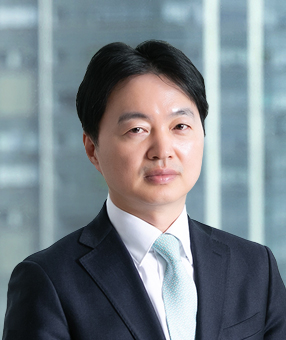The product, Kymriah® is considered a ground breaking new treatment for cancer patients. This treatment involves modifying immune cells outside of the human body and then putting them back to fight the cancer cells ravaging the patient. Scientist have long sought a working treatment using gene and cell therapy technology for decades and Kymriah represents the first practical medicine that has been approved for treating patients.
The patent for this new and innovative technology, specifically referred to as CAR-T (chimeric antigen receptor T) cell therapy, was recently challenged by follow on companies in Korea. An action was filed in the Intellectual Property Trial and Appeal Board (IPTAB) requesting the patent be cancelled for lack of inventiveness. A cancellation action is an ex parte process where any entity can challenge the patentability of the invention based on limited grounds (such as prior art related issues) within 6 months of the patent registration date. The cancellation actions against Kymriah was filed in 2021 and took longer than usual because of the intense dispute regarding inventiveness of the patent in view of the prior art. There were a number of earlier documents pointing to the components of the treatment along with some pre-clinical studies. After a long fought battle, in May of 2023, Kim & Chang was able to obtain a favorable decision from the IPTAB upholding the inventiveness of the Kymriah patent. This is the first successful case for the originator in a dispute filed by a third party on the validity of a patent covering a commercial product related to cell and gene therapy in Korea.
The specific patent at issue is directed to a pharmaceutical composition for treating leukemia or a lymphoma in a human patient resistant to at least one chemotherapeutic agent, comprising human autologous T cells which express the specific CD19 CAR construct. One main issue of this case was whether the effects of the claimed autologous CAR-T cells from "cancer patients" could have been easily expected from the prior art which disclosed experimental results from animal and in vitro tests using CAR-T cells from "healthy donors." The IPTAB found unpredictability of the patent based on the understanding that T cells of a cancer patient may show different characteristics from T cells of a healthy donor in terms of proliferation, etc. and there are no experimental grounds supporting that T cells from a healthy donor and T cells from a cancer patient would show similar reactions when CAR was introduced. The other issue was whether the effects on a "human patient" could have been easily expected from the prior art experimental results from "in vitro" testing using T cells from cancer patients, which showed proliferation and anti-tumor effects of CAR-T cells when co-cultured with leukemic cells. The IPTAB held that the effect of CAR-T cells in a human patient cannot be easily predicted by a person skilled in the art from the in vitro results because it was known that the environment within the body of a cancer patient may reduce the immune function of T cells and CAR-T therapy was still in the development stage at the priority date. Thus, it was difficult to consider that it was well known in the art that T cells derived from patients expressing CAR could survive and proliferate for a long period so as to have the desired therapeutic effect in the human body.
In Korea, the issue of whether animal or in vitro testing can predict an invention's innovative effect on human patients is one of the most hotly debated issue in the pharmaceutical industry. Before this decision, there were no clear precedent on this issue and a small number of cases have actually stated that pre-clinical testing results could be an indicator for prior understanding of the technical feature which worked against inventiveness of a pharmaceutical patent. Kim & Chang's team of patent attorneys with specialty in cell and molecular biology were able to advocate to the IPTAB the sheer innovation and unpredictability that this technology represented and overwhelmed any doubt as to the patent's inventiveness from the prior documents, resulting in a favorable decision for the originator companies. This treatment has saved many human lives to date but more importantly, it opened the door to many other similar treatments which are being currently developed worldwide. Although the final outcome related to the patent is still not conclusive because there could still be further challenges to the patent, this recent decision is an important step in protecting the rights of innovators of medicines that are radically different from conventional medicines and to incentivize innovators to develop more inventions like this which greatly impact patients with serious diseases.
Related Topics






